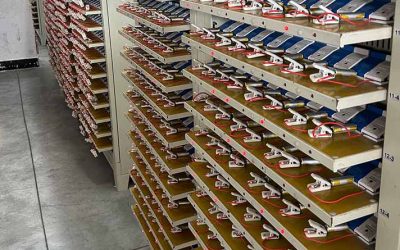Tesla, and other electric vehicle (EV) manufacturers, primarily use lithium-ion (Li-ion) batteries for their vehicles due to the specific advantages they offer. While lithium-polymer (LiPo) batteries have their own benefits, they might not be as suitable for Tesla’s needs. Here’s a comparison to understand why Tesla uses Li-ion batteries and whether LiPo batteries could offer any benefits:
Benefits of Lithium-Ion Batteries for Tesla:
- Energy Density:
- Li-Ion: Li-ion batteries have a high energy density, meaning they can store a large amount of energy relative to their weight and size. This is crucial for EVs to achieve longer driving ranges without excessive battery weight.
- LiPo: While LiPo batteries also have high energy density, they are not typically used in large-scale applications like EVs due to other limitations.
- Cycle Life:
- Li-Ion: Li-ion batteries generally have a longer cycle life compared to LiPo batteries. They can handle many charge and discharge cycles before their capacity significantly degrades, which is important for the long-term use of EVs.
- LiPo: LiPo batteries often have a shorter cycle life and may degrade faster with frequent use.
- Cost:
- Li-Ion: The cost of Li-ion batteries has decreased significantly due to economies of scale and advancements in manufacturing technology. They are more cost-effective for large battery packs required for EVs.
- LiPo: LiPo batteries are often more expensive to produce compared to Li-ion batteries, making them less cost-effective for large applications like EVs.
- Thermal Management:
- Li-Ion: Li-ion batteries are well-suited for handling the thermal management required in EVs. They are designed to operate safely within a controlled temperature range.
- LiPo: LiPo batteries can be more sensitive to temperature changes and may require more sophisticated thermal management to ensure safe operation.
- Form Factor:
- Li-Ion: Li-ion batteries come in cylindrical, prismatic, and pouch formats, offering flexibility in design for EV battery packs. Tesla uses prismatic Li-ion cells which are well-suited for automotive applications.
- LiPo: LiPo batteries are more flexible in terms of shape and size, but they are typically used in smaller applications like drones, RC cars, and portable devices, rather than large-scale EV battery packs.
- Safety:
- Li-Ion: Li-ion batteries have robust safety features and management systems designed to prevent overheating, overcharging, and other risks.
- LiPo: While LiPo batteries are generally safe, they can be more susceptible to damage from physical impacts and may require more careful handling and management.
Potential Benefits of LiPo Batteries:
- Weight and Design Flexibility:
- LiPo: LiPo batteries are lighter and can be molded into various shapes, which might offer design flexibility in specific applications. However, this advantage is less critical for the large-scale battery packs used in EVs compared to other factors.
- Higher Discharge Rates:
- LiPo: LiPo batteries can deliver higher discharge rates, which is beneficial for applications requiring high burst power. For Tesla, the energy and power demands are managed with current Li-ion technology, so this benefit is less relevant.
Conclusion:
While lithium-polymer batteries have some advantages, such as design flexibility and high discharge rates, lithium-ion batteries are generally more suitable for Tesla’s needs due to their higher energy density, longer cycle life, cost-effectiveness, and established safety protocols. Li-ion technology is well-suited to the requirements of large-scale EV battery packs, making it the preferred choice for Tesla and most other electric vehicle manufacturers.

发表回复